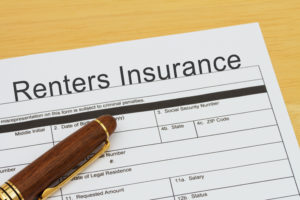Any responsible renter knows that you should not enter a lease agreement with your landlord without knowing all the pertinent information. Before renting an apartment or house, there are some crucial questions you must ask a landlord first.
In this article:
Important Questions to Ask a Landlord When Searching for a Home to Rent
There are an estimated 43 million rental properties in the United States alone, and that number seems to increase with each passing year. That means the options for renters are growing, and there are more prospects to consider. Part of sensible house hunting, though, is knowing what to ask when renting an apartment or house. You can’t blindly enter a deal without knowing rent details, lease terms, and any applicable policies. Doing that will only invite disputes down the road.
Here are the most critical questions to ask before renting an apartment or house:
1. How much is the rent and what is included in it?
 Although listings usually show how much you expect to pay in rent, a lot of things could change in between posting the ad and signing the lease.
Although listings usually show how much you expect to pay in rent, a lot of things could change in between posting the ad and signing the lease.
Make sure to ask how much the rent is and what is included. Does it cover utilities? If so, which ones? What about parking? It is imperative to get specific here so that you know exactly what you are paying for. Other than that, ask if there are any rent increases, incremental or otherwise.
2. How do I pay rent and when is it due?
Apart from the rent amount, it is equally important to ask about the method of payment and the deadline. Some landlords only accept cash or check while others make rent payments convenient with direct debit or even Venmo. Also, ask a landlord if there is a grace period for late payments, which will allow you some breathing room when you are strapped for cash.
3. What happens if I miss the rent due date?
Let’s face it — there may be times when you miss the deadline for rent and even go beyond the grace period. As such, one of the most important questions to ask when renting an apartment is, “Are there any penalties for late payments?” Most landlords will let you off with a warning the first time around and then impose a late fee or fine for subsequent occurrences.
4. Is the security deposit refundable?
Security deposits are generally refundable, though there are some cases when a landlord can keep a portion of your entire deposit. This usually happens if you break the terms of your lease or cause damages to the property.
5. Is renters insurance necessary?
 Another question to ask a landlord is whether or not renters insurance is required. This type of insurance covers the cost of your belongings in the event of theft or damages arising from peril.
Another question to ask a landlord is whether or not renters insurance is required. This type of insurance covers the cost of your belongings in the event of theft or damages arising from peril.
It can also offer liability coverage in case you cause damage to the property or injury to a person. Renters insurance is an out-of-pocket expense, so if you prefer not to pay for insurance, make sure your landlord does not require it.
6. How long is the lease duration?
Most leases run for 12 months, but there are some landlords who operate using a 6-month or 18-month lease duration. The apartment or house you ultimately rent should have a lease term you are comfortable with. After all, if you do not intend to stay for 18 months, there is no point in signing an agreement that binds you for that long.
7. How much notice is required before moving out?
One of the most critical questions to ask before signing a lease has to do with notice periods. Namely, how much notice your landlord requires before you vacate the premises. Your lease agreement will typically outline this information, which can range from a month to three months. Make sure to check with your landlord before renting so that you avoid breaking the lease terms when you decide to move out.
8. How much notice do you give before entering my unit?
Landlords must respect their tenant’s privacy, as outlined in the Landlord-Tenant Law. However, there will be times when your landlord must enter your unit for maintenance or repair purposes. Your landlord will need to provide you with notice before they access the property. Make sure to ask how much notice will be given (usually 24 hours) so that you can make the necessary arrangements ahead of time.
9. How do you handle emergency maintenance?
Maintenance is a common point of contention between landlords and tenants, especially when it comes to emergencies. Make sure to ask what constitutes an emergency and find out what sort of maintenance your landlord provides. You must also learn the process for making maintenance requests, which is usually covered in the lease agreement as well.
10. What is your pet policy?
Pets are family, and you may not want to live in an apartment or house that does not allow them. Ask a landlord if they allow pets in the first place. If they do, ask about any restrictions they may impose, such as limiting the size, breed, and number of pets.
11. What is your policy on guests?
Not all landlords have the same policy when it comes to guests. As such, it is one of the most essential questions to ask when renting a house or apartment. Find out if there is an occupancy limit and whether or not it applies to overnight guests. Ask your landlord what counts as an extended stay.
12. Can I sublet the unit?
You may have an upcoming trip or long-term out-of-town assignment for work. Either way, you will be gone for many months and don’t want to waste money paying rent for a unit you won’t use for a while. In this case, you may want to sublet your unit, though it will depend on your landlord’s subletting policies.
13. Can I renew my lease when it expires?
 Most rental property owners will want to renew a quality tenant’s lease. As long as you fit the bill, your landlord will welcome a lease renewal with open arms.
Most rental property owners will want to renew a quality tenant’s lease. As long as you fit the bill, your landlord will welcome a lease renewal with open arms.
However, if your landlord plans to sell the property after your lease expires, renewal is no longer an option. That means you will need to pack up and restart the house hunting process all over again. If you don’t want to do that, then make sure to ask if renewal is even possible at the end of the term.
14. Can I end the lease early? What happens if I do?
Early lease termination is something you may have to go through, so see to it that your landlord allows it. Most agreements will include a clause indicating the consequences of premature termination. Regardless, it is paramount that you ask a landlord whether early lease termination is possible and what penalties you will face when you break the lease.
There is usually a fee involved, but the amount varies from landlord to landlord. That said, you must stay away from landlords who don’t allow you to break your lease for any reason.
15. Would you live here?
Perhaps the most revealing question of all, asking this will determine whether or not the property is even worth your time. When you ask a landlord this question, remember to study their reaction. You can tell a lot about a property by the way the landlord responds. If they hesitate, wince, or avoid eye contact, there is a good chance the property comes with underlying issues.
Get the Answers in Writing
It is vital for any renter to ask a landlord these questions prior to signing a lease. The search for a place to live can be long and tiring. You can make the process a lot easier by coming in prepared with a set of questions. You may have some non-negotiable terms, such as permitting pets on the premises, and asking the right questions will allow you to narrow down your options.
Though, keep in mind that it is not enough to ask questions. You may get the answers you want through a verbal discussion only to get betrayed down the line. Make sure to get these answers in writing and review your lease thoroughly before signing.
Landlords can make the tenant selection and screening process faster and easier by partnering with a property management company. Look for the best ones using Rental Choice.




 Company
Company